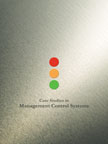Operations Management
 |
Details
Textbook:
Pages : 329;
Paperback;
210 X 275 mm approx.
Workbook:
Pages :
239; Paperback;
210 X 275 mm approx, Sample Applied Theory Questions
Courier charges extra
Pricing
Textbook Price: Rs. 900;
Workbook Price: Rs. 700;
Available only in INDIA
Detail Table of Contents
Click below to view
HTML
Facilities and Maintenance Management : Chapter 19
SUMMARY:
Facilities management is concerned with operations and maintenance of facilities so that work in the facilities is carried out in the most efficient manner. The functions under facilities management are either performed in-house or outsourced to an external agency. Outsourcing of facilities management has increased rapidly due to the associated benefits like cost reductions and the flexibility gained by the organization to focus on their core competencies.
|
|
entire production process. Maintenance is of three types – preventive, predictive, and remedial. Preventive maintenance is undertaken before the need for maintenance arises, and aims at minimizing the possibility of unanticipated breakdowns. Predictive maintenance is a type of preventive maintenance in which the vital attributes of a system are monitored continuously. Whenever these attributes deviate from their acceptable range, steps are taken to rectify the problem. Remedial maintenance is undertaken only when a machine breaks down or malfunctions.
In maintenance planning, operations managers have to decide on a proper balance between preventive maintenance and remedial maintenance.
Reliability centered maintenance management focuses on improving the performance of a system by identifying and improving the reliability of the system. The objective of total productive maintenance is to improve the productivity of the equipment by minimizing the number of breakdowns and malfunctions. Organizations have realized the importance of maintenance, and the way in which proper maintenance planning enables them to reduce breakdowns, errors and accidents, and minimizes the costs of maintenance activities.



